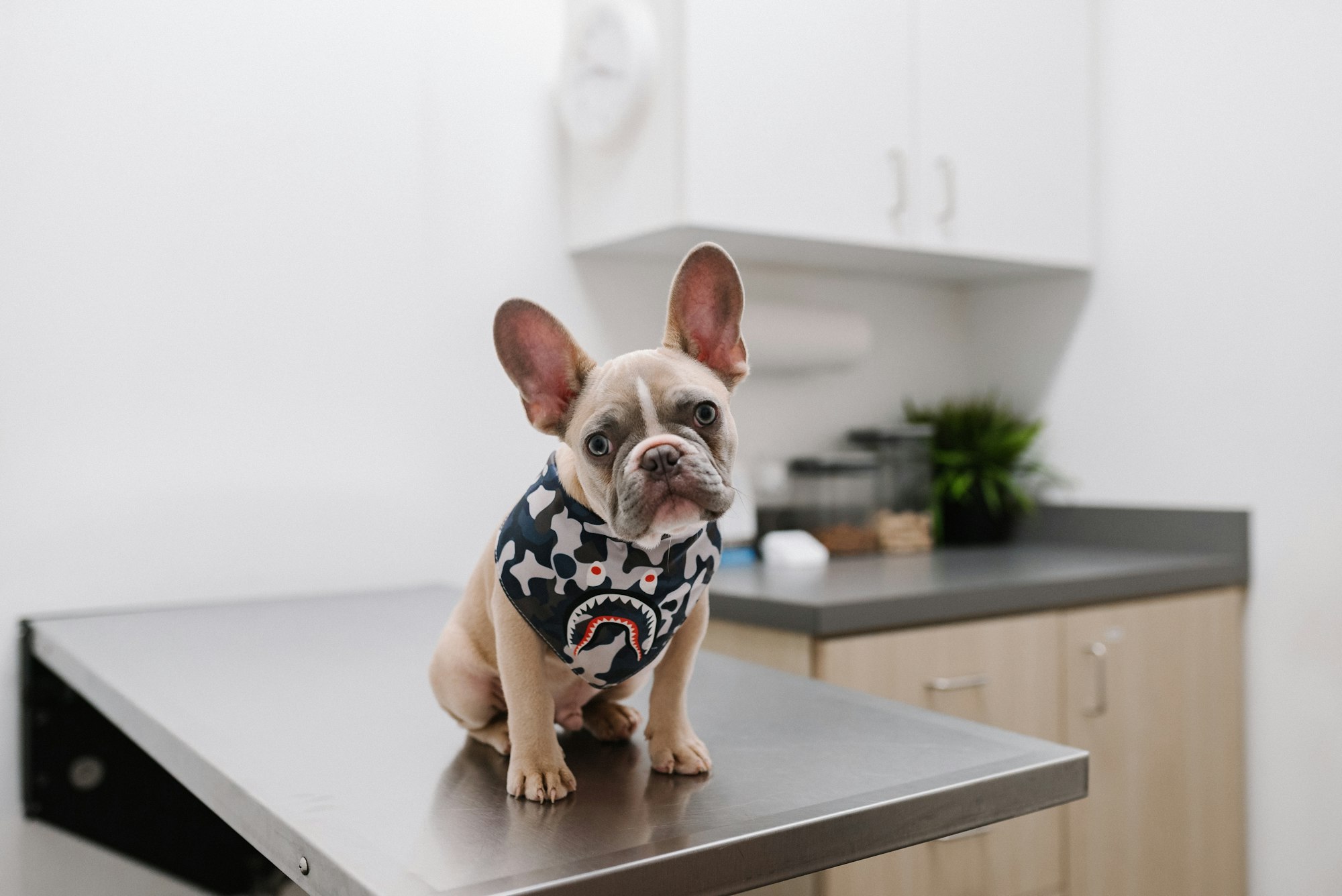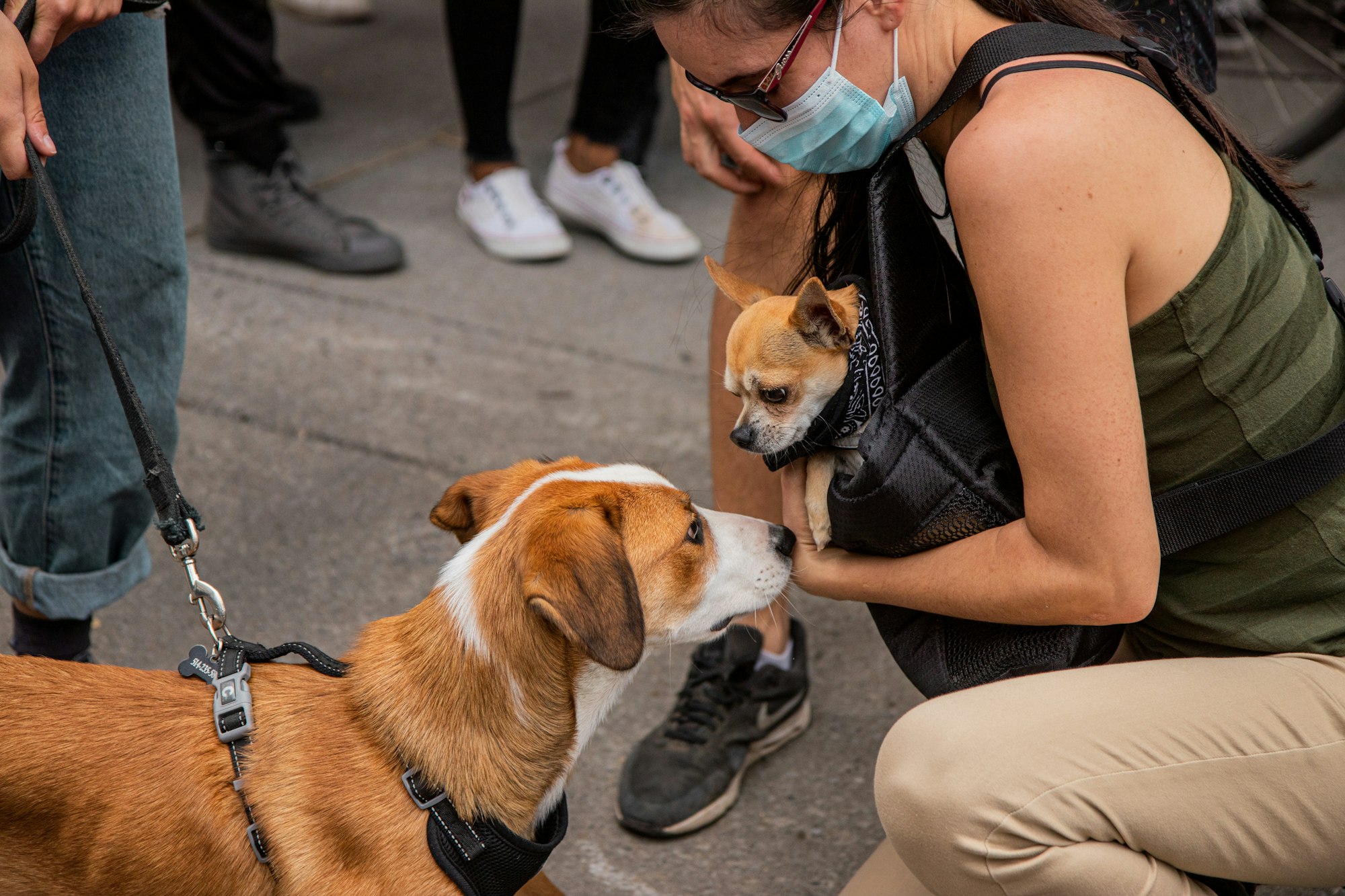In recent times, the global pandemic has raised many questions, and among them is a concern that hits close to home for many: Can dogs get COVID? As a pet owner, it's only natural to worry about the health and well-being of your furry companions. In this article, we'll delve into the topic of whether dogs can contract COVID-19, how it affects them, and what measures you can take to ensure the safety of both your pets and your family.
The COVID-19 pandemic has led to a surge in queries about its impact on pets, particularly dogs. As responsible pet owners, it's crucial to gather accurate information to safeguard both human and canine health.

Understanding COVID-19
Here, we'll explore the topic step by step, diving into the details of whether dogs can contract COVID-19, understanding, and what you, as a responsible pet owner, should know.
- The Basics of COVID-19: COVID-19, caused by the SARS-CoV-2 virus, primarily affects humans. It's essential to grasp the fundamentals of the virus before delving into its potential impact on dogs.
- Transmission of COVID-19: Understanding how the virus spreads among humans is a crucial step in determining if dogs can contract it. Human-to-human transmission is the primary mode of spread.
- Instances of Animal Infections: While COVID-19 is primarily a human disease, isolated cases of animals testing positive, including dogs, have been reported. These cases have mostly been linked to human-to-animal transmission.

Can Dogs Contract COVID-19?
The burning question remains: Can dogs contract COVID-19? The answer is yes, but the likelihood is relatively low. Here's what you need to know:
- Limited Canine Cases: The number of confirmed COVID-19 cases in dogs remains minimal compared to humans.
- Human-to-Animal Transmission: In instances where dogs have tested positive, it's believed that the virus was transmitted from humans to dogs.
Instances of Canine Infections
Unveiling Isolated Cases
Reports of COVID-19 in dogs have been few and far between. It's important to note that the vast majority of dogs remain unaffected by the virus. However, the following instances provide insight into how dogs can become infected:
1. Human-to-Animal Transmission
In cases where dogs have tested positive for COVID-19, the most likely mode of transmission is from infected humans. Dogs share close living spaces with their owners, which can facilitate viral transmission. Dogs exposed to COVID-19-positive individuals may inhale respiratory droplets or come into contact with contaminated surfaces.
2. Limited Positive Tests
While isolated cases of positive COVID-19 tests in dogs have been reported, they represent a minuscule fraction of the canine population. Infection rates among dogs remain significantly lower than in humans.
How Does COVID-19 Affect Dogs?
In this section, we'll delve into the fascinating world of canine COVID-19 infections, exploring the symptoms, outcomes, and overall implications for our beloved pets.

Unraveling the Canine Experience
While COVID-19 primarily affects humans, dogs can indeed contract the virus under certain circumstances. However, the effects on dogs are generally milder compared to the illness seen in humans.
Mild Respiratory Symptoms
Dogs that have tested positive for COVID-19 often display mild respiratory symptoms. These symptoms may include:
- Coughing: Some dogs might develop a dry, persistent cough.
- Sneezing: Sneezing can occur as part of the respiratory response.
- Nasal Discharge: A mild runny nose might be observed.
Gastrointestinal Symptoms
In addition to respiratory signs, some dogs have shown mild gastrointestinal symptoms:
- Vomiting: Infected dogs might experience mild bouts of vomiting.
- Diarrhea: Mild gastrointestinal upset, including diarrhea, is possible.
Lethargy and Reduced Appetite
Like humans, infected dogs might experience a general sense of lethargy and a decreased interest in food. This lack of energy is typically temporary and improves as the infection resolves.
Recovery and Resilience
The good news is that dogs infected with COVID-19 tend to recover relatively quickly and without extensive medical intervention. Most cases are mild and severe illness is rare. Proper care, including rest, hydration, and a well-balanced diet, can aid in the recovery process.
Limited Risk to Humans
One of the essential takeaways is that while dogs can contract COVID-19, the risk of them transmitting the virus to humans is exceedingly low. Dogs are not considered significant vectors for the spread of the virus among people.
The Big Picture: Your Role as a Pet Owner
As a responsible pet owner, it's crucial to stay informed about the latest developments regarding COVID-19 and dogs. While the potential for infection exists, maintaining your dog's overall health and well-being remains paramount.

Preventive Measures for Pet Owners
In this section, we'll explore practical preventive measures you can take to reduce the risk of COVID-19 transmission to your dog and ensure their well-being.
Limiting Exposure and Practicing Hygiene
- Avoid Unnecessary Contact: While dogs can contract COVID-19, transmission from dogs to humans is rare. Nevertheless, limiting close interactions between your dog and people outside your household is recommended.
- Hand Hygiene: Wash your hands thoroughly with soap and water before and after interacting with your dog. This reduces the risk of potential virus transmission from surfaces to you or your pet.
- Grooming and Cleaning: Regularly groom and clean your dog's fur, paws, and other exposed areas. This helps minimize the possibility of viral particles lingering on their coat.
Safety Precautions for Infected Owners
- Limited Contact: If you're COVID-19-positive, minimize direct contact with your pet. Have another member of your household care for your dog until you're no longer contagious.
- Wearing a Mask: If you must interact with your dog, wear a mask to reduce the risk of respiratory droplets reaching your pet.
Routine Veterinary Care
- Regular Check-ups: Maintain your dog's routine veterinary appointments. Your veterinarian can help identify any health issues early on and provide guidance on keeping your happy dog healthy.
- Vaccinations: Ensure your dog is up to date on vaccinations. While COVID-19 vaccines for dogs aren't necessary, staying current on other vaccinations is essential.
Creating a Safe Environment
- Clean Living Spaces: Regularly clean and disinfect your home, paying extra attention to high-touch surfaces such as doorknobs and countertops.
- Restricted Outdoor Activities: Limit your dog's interactions with other dogs and people, especially in areas with high human traffic.
- Avoid Crowded Areas: When walking your dog, opt for less crowded routes to maintain social distancing.
Staying Informed
- Trustworthy Sources: Rely on reputable sources like the CDC, AVMA, and WHO for accurate and updated information regarding COVID-19 and pets.
- Local Guidelines: Follow local health guidelines and regulations that pertain to pet ownership during the pandemic.
As a pet owner, your commitment to the well-being of your furry friend goes beyond providing food and shelter. By following these preventive measures, you can significantly reduce the risk of COVID-19 transmission to your dog and ensure their safety and health. Remember that while the risk is low, staying informed and cautious is key to navigating these uncertain times successfully.
Keeping Your Dog Safe
In this section, we'll delve into practical strategies you can implement to safeguard your furry friend during these challenging times.
Balanced Nutrition and Hydration
- Wholesome Diet: Provide your dog with a well-balanced and nutritious diet to bolster their immune system. Consult your veterinarian for dietary recommendations tailored to your dog's needs.
- Ample Water: Ensure your dog has access to clean and fresh water at all times. Proper hydration is crucial for overall health.
Regular Exercise and Mental Stimulation
- Exercise Routine: Engage your dog in regular exercise to keep them physically active and mentally stimulated. Walks, playtime, and interactive dog toys can help prevent boredom.
- Mental Challenges: Enrich your dog's environment with puzzle toys and activities that engage their mind, promoting mental well-being.
Proper Hygiene Practices
- Bathing and Grooming: Maintain a regular grooming schedule, including baths and brushing, to keep your dog clean and comfortable.
- Ear and Dental Care: Pay attention to your dog's ears and teeth, keeping them clean and free from infections.
Routine Veterinary Care
- Vaccinations: Stay up to date on your dog's vaccinations as recommended by your veterinarian. While COVID-19 vaccines for dogs aren't necessary, routine vaccinations are crucial.
- Health Check-ups: Regular veterinary check-ups can help identify any health issues early and ensure your dog's overall well-being.
Safe Socialization
- Limited Contact: While your dog may enjoy social interactions, ensure that these interactions are limited and conducted safely.
- Virtual Playdates: Explore virtual playdates or training sessions with other good family dogs and their owners to provide social stimulation without physical contact.
Creating a Calm Environment
- Safe Space: Designate a quiet and comfortable spot where your dog can retreat when they need a break from stimulation.
- Reducing Stress: Minimize exposure to loud noises and sudden disruptions that could stress your dog.
Regular Sleep Patterns
- Adequate Rest: Ensure your dog gets enough sleep for their age and size. A well-rested dog is healthier and happier.
In these unprecedented times, your dog's safety and well-being are of utmost significance. By providing proper nutrition, exercise, grooming, and veterinary care, you can ensure that your furry friend remains healthy and happy. Remember that your attention, care, and affection go a long way in helping your dog navigate the challenges of the pandemic while staying safe and thriving.
The Role of Veterinary Care
In this section, we'll explore the significance of veterinary care during these challenging times and how it contributes to your dog's overall health.
Preventive Health Assessments
- Regular Check-ups: Scheduled visits to your veterinarian allow for comprehensive health assessments. Regular check-ups help catch any potential issues early and ensure your dog's well-being.
- Vaccinations: Veterinarians provide essential vaccinations that protect your dog from various diseases. Staying current on vaccinations is crucial, even during the pandemic.

Customized Health Management
- Tailored Advice: Your veterinarian can provide personalized advice based on your dog's age, breed, health history, and specific needs.
- Nutrition Guidance: Get expert recommendations for your dog's diet, ensuring they receive the right nutrients for optimal health.
Detection and Early Intervention
- Health Monitoring: Veterinarians can perform regular health screenings, including blood tests and physical exams, to monitor your dog's overall health.
- Early Diagnosis: Detecting health issues early allows for prompt intervention, minimizing the impact of potential illnesses.
Treatment and Recovery
- Accurate Diagnosis: In case of illness, your veterinarian can accurately diagnose the issue and recommend appropriate treatments.
- Monitoring and Support: Your veterinarian can monitor your dog's progress during treatment and guide a successful recovery.
Dental Care
- Oral Health: Veterinary care includes dental check-ups and cleanings, essential for maintaining your dog's oral health.
- Preventing Complications: Dental issues can lead to various health complications, making regular dental care essential.
Behavioral Guidance
- Behavioral Concerns: Veterinarians can provide insights and strategies to address behavioral concerns, ensuring a harmonious relationship between you and your dog.
- Supportive Care: In times of stress or behavior changes, veterinarians can offer guidance to help your dog adapt.
Telehealth Services
- Remote Consultations: Many veterinarians offer telehealth services, allowing you to seek guidance and advice without leaving your home.
- Non-Emergency Queries: Telehealth consultations are useful for non-emergency queries, especially during periods of lockdown or restricted movement.
Veterinary care remains an essential component of your dog's overall health, even in the face of the COVID-19 pandemic. By partnering with your veterinarian and staying proactive about your dog's health needs, you can ensure that your furry companion receives the best possible care. Remember that your veterinarian is a valuable resource, providing guidance and support to help your dog thrive during these challenging times.
Conclusion
In the midst of uncertainties, it's reassuring to know that while dogs can get COVID-19, their cases are generally mild. By taking appropriate precautions, prioritizing their health, and seeking veterinary care when needed, you can keep your beloved pet safe and healthy.
Frequently Asked Questions
- Can I still cuddle with my dog if I have COVID-19?
- While it's best to limit contact if you must interact, wear a mask and wash your hands before and after.
- Can dogs transmit COVID-19 to humans?
- While rare, there have been a few cases of dogs transmitting the virus to humans. However, human-to-human transmission remains the primary concern.
- Should I get my dog tested for COVID-19?
- Only if your dog displays symptoms. Consult a veterinarian for guidance.
- Can my dog's fur carry the virus?
- The risk is minimal, but it's a good practice to keep your dog clean and groomed.
- Is vaccination available for dogs against COVID-19?
- As of now, there's no need for COVID-19 vaccination in dogs.




